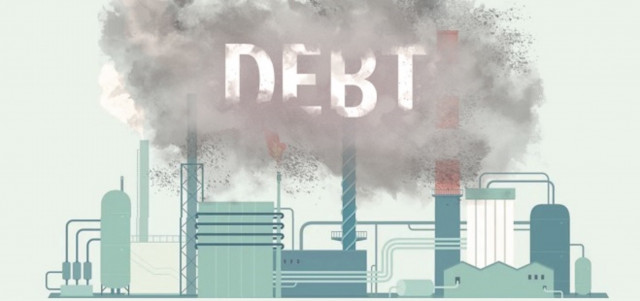Even debt restructuring may not be enough: experts
PBF Spokesperson, Zainab Jatoi expresses disappointment with incumbent govt’s handling of the financial situation

Pakistan’s economy is on the brink as it grapples with mounting pressure and hyperinflation caused by an overwhelming debt burden. Urgent calls for debt restructuring are echoing through the country, with experts warning that the rupee is poised to face immense strain in the first quarter of the upcoming fiscal year if the impasse with the International Monetary Fund (IMF) program persists.
The Pakistan Business Forum (PBF) has raised concerns that the rupee will come under severe pressure in the initial months of the next fiscal year if the IMF program remains stalled. The upcoming two to three days are crucial in determining the fate of the economy.
PBF Spokesperson, Zainab Jatoi expressed disappointment with the incumbent government’s handling of the financial situation. Last year, the government had promised to secure Rs843 billion from banks during FY2023, which concludes this month. However, the federal government has already borrowed a staggering Rs3.176 trillion from banks between July 1, 2022, and June 2, 2023, just 28 days before the end of the year.
This excessive borrowing not only crowded out the private sector but also sent economic growth spiralling from 6.1% last year to a meagre estimated 0.3% this year. Inflation has skyrocketed, reaching a 50-year high of 38%, leaving ordinary citizens struggling to make ends meet.
“We are borrowing new to pay old,” lamented Zulfikar Thaver, President of the Union of Small and Medium Enterprises (UNISAME). He emphasised the importance of saving from earnings to break this cycle of dependency. Thaver pointed out the country’s excessive spending, rampant wastage in energy, food, and time, and the urgent need for debt restructuring in collaboration with experts.
“We once did an energy audit of a factory and found 40% extra lights unnecessarily turned on,” he said.
Thaver stressed the importance of increasing yields, promoting exports, and focusing on necessary imports to boost the economy. He also emphasised the need for improved efficiency, reduced corruption, and effective marketing of Pakistan’s geographical assets in global markets. He also highlighted expanding the tax network and curbing deficit financing as critical steps. Thaver warned that progress would be impossible without skilful restructuring.
The PBF spokesperson criticised the lack of parliamentary democracy in the country, which deprives the parliament of its authority to question the government. She underscored that regaining the true spirit of parliamentary democracy and ensuring constitutionally guaranteed freedom for the media would enable better management of the current economic crisis.
Jatoi highlighted the necessity of holding free and fair elections on time, preferably in October, as a crucial step toward restoring stability. She warned that any delay in elections would exacerbate the current political polarisation and cause irreparable damage to the economy.
However, Muhammad Raza, a Karachi-based businessman, expressed scepticism, arguing that even debt restructuring would not resolve the underlying issues. Raza attributed the problem to the lack of unity among politicians and stakeholders, who fail to work together on a single economic agenda. He highlighted the closure of industries in major cities like Karachi, Lahore, Faisalabad, and Sheikhupura as evidence of the current challenges.
Highlighting additional indicators of the financial crisis, Jatoi said the government had initially projected spending Rs3.95 trillion on interest payments for domestic and foreign debt in FY23. However, real interest instalments already amounted to Rs3.582 trillion within three-quarters of the fiscal year and are projected to exceed Rs5.3 trillion by the end of June.
Factors such as high interest rates to combat inflation and the devaluation of the rupee have contributed to this significant deviation from budgetary targets. “The anticipated spending for FY2024 under the heading of interest payments is Rs7.303 trillion, and the target for tax revenue is Rs9.2 trillion. In other words, interest payments alone would require approximately 80% of the tax revenue,” said Jatoi.
Published in The Express Tribune, June 29th, 2023.
Like Business on Facebook, follow @TribuneBiz on Twitter to stay informed and join in the conversation.



















COMMENTS
Comments are moderated and generally will be posted if they are on-topic and not abusive.
For more information, please see our Comments FAQ